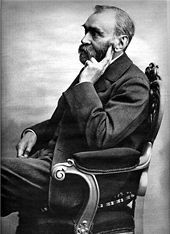Welcome to The Breakfast Club! We’re a disorganized group of rebel lefties who hang out and chat if and when we’re not too hungover we’ve been bailed out we’re not too exhausted from last night’s (CENSORED) the caffeine kicks in. Join us every weekday morning at 9am (ET) and weekend morning at 10:30am (ET) to talk about current news and our boring lives and to make fun of LaEscapee! If we are ever running late, it’s PhilJD’s fault.

Breakfast Tune: Valerie June, Rollin’ and Tumblin’ (live session)
Today in History
George Washington dies at age 67; Norwegian explorer Roald Amundsen and his group reach South Pole; Leaders of Bosnia, Serbia and Croatia sign an internationally-brokered peace treaty. (Dec. 14)
News
Operation Socialist
By Ryan Gallagher, The Intercept
12/13/14
Inside a row of gray office buildings in Brussels, a major hacking attack was in progress. And the perpetrators were British government spies.
…
Last year, documents from National Security Agency whistleblower Edward Snowden confirmed that British surveillance agency Government Communications Headquarters was behind the attack, codenamed Operation Socialist. And in November, The Intercept revealed that the malware found on Belgacom’s systems was one of the most advanced spy tools ever identified by security researchers, who named it “Regin.”The full story about GCHQ’s infiltration of Belgacom, however, has never been told. Key details about the attack have remained shrouded in mystery-and the scope of the attack unclear.
Now, in partnership with Dutch and Belgian newspapers NRC Handelsblad and De Standaard, The Intercept has pieced together the first full reconstruction of events that took place before, during, and after the secret GCHQ hacking operation.
Based on new documents from the Snowden archive and interviews with sources familiar with the malware investigation at Belgacom, The Intercept and its partners have established that the attack on Belgacom was more aggressive and far-reaching than previously thought. It occurred in stages between 2010 and 2011, each time penetrating deeper into Belgacom’s systems, eventually compromising the very core of the company’s networks.
Heaping serving of news & blogs below. Coffee, Prozac & Snowden’s Jig

 On this day in 1642,
On this day in 1642,  New Zealand is one of the most recently settled major landmasses. The first known settlers were Eastern Polynesians who, according to most researchers, arrived by canoe in about AD 1250-1300. Some researchers have suggested an earlier wave of arrivals dating to as early as AD 50-150; these people then either died out or left the islands. Over the following centuries these settlers developed into a distinct culture now known as Maori. The population was divided into iwi (tribes) and hapu (subtribes) which would cooperate, compete and sometimes fight with each other. At some point a group of Maori migrated to the Chatham Islands where they developed their distinct Moriori culture.
New Zealand is one of the most recently settled major landmasses. The first known settlers were Eastern Polynesians who, according to most researchers, arrived by canoe in about AD 1250-1300. Some researchers have suggested an earlier wave of arrivals dating to as early as AD 50-150; these people then either died out or left the islands. Over the following centuries these settlers developed into a distinct culture now known as Maori. The population was divided into iwi (tribes) and hapu (subtribes) which would cooperate, compete and sometimes fight with each other. At some point a group of Maori migrated to the Chatham Islands where they developed their distinct Moriori culture.
 On this day in 1946,
On this day in 1946,  In 1953,
In 1953,  On this day in 1901,
On this day in 1901, 
 The Joint Committee on the Conduct of the War was a
The Joint Committee on the Conduct of the War was a  John and I are in our Dakota kitchen in the middle of the night. Three cats – Sasha, Micha and Charo – are looking up at John, who is making tea for us two.
John and I are in our Dakota kitchen in the middle of the night. Three cats – Sasha, Micha and Charo – are looking up at John, who is making tea for us two.

Recent Comments